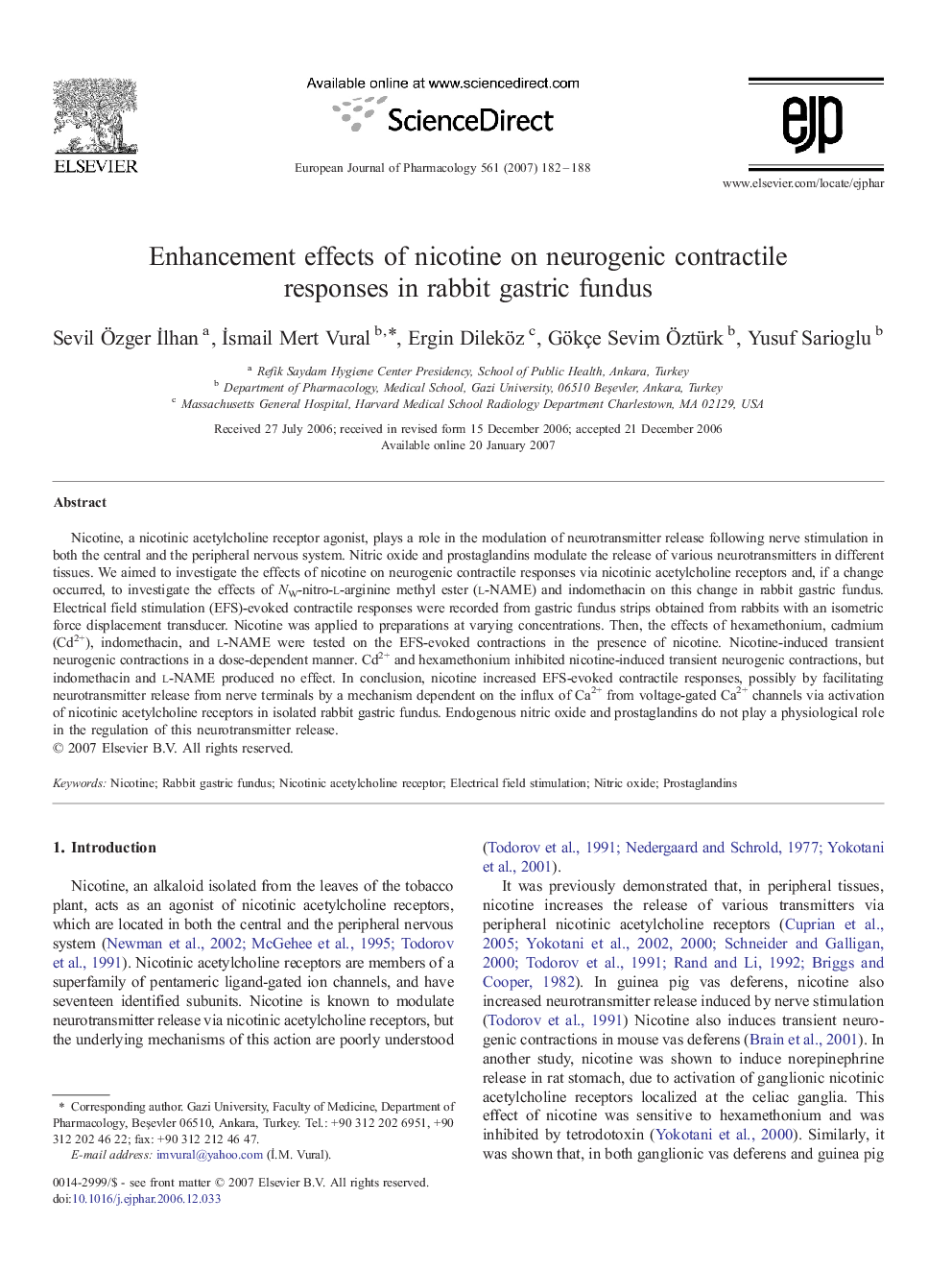| Article ID | Journal | Published Year | Pages | File Type |
|---|---|---|---|---|
| 2536287 | European Journal of Pharmacology | 2007 | 7 Pages |
Nicotine, a nicotinic acetylcholine receptor agonist, plays a role in the modulation of neurotransmitter release following nerve stimulation in both the central and the peripheral nervous system. Nitric oxide and prostaglandins modulate the release of various neurotransmitters in different tissues. We aimed to investigate the effects of nicotine on neurogenic contractile responses via nicotinic acetylcholine receptors and, if a change occurred, to investigate the effects of NW-nitro-l-arginine methyl ester (l-NAME) and indomethacin on this change in rabbit gastric fundus. Electrical field stimulation (EFS)-evoked contractile responses were recorded from gastric fundus strips obtained from rabbits with an isometric force displacement transducer. Nicotine was applied to preparations at varying concentrations. Then, the effects of hexamethonium, cadmium (Cd2+), indomethacin, and l-NAME were tested on the EFS-evoked contractions in the presence of nicotine. Nicotine-induced transient neurogenic contractions in a dose-dependent manner. Cd2+ and hexamethonium inhibited nicotine-induced transient neurogenic contractions, but indomethacin and l-NAME produced no effect. In conclusion, nicotine increased EFS-evoked contractile responses, possibly by facilitating neurotransmitter release from nerve terminals by a mechanism dependent on the influx of Ca2+ from voltage-gated Ca2+ channels via activation of nicotinic acetylcholine receptors in isolated rabbit gastric fundus. Endogenous nitric oxide and prostaglandins do not play a physiological role in the regulation of this neurotransmitter release.
